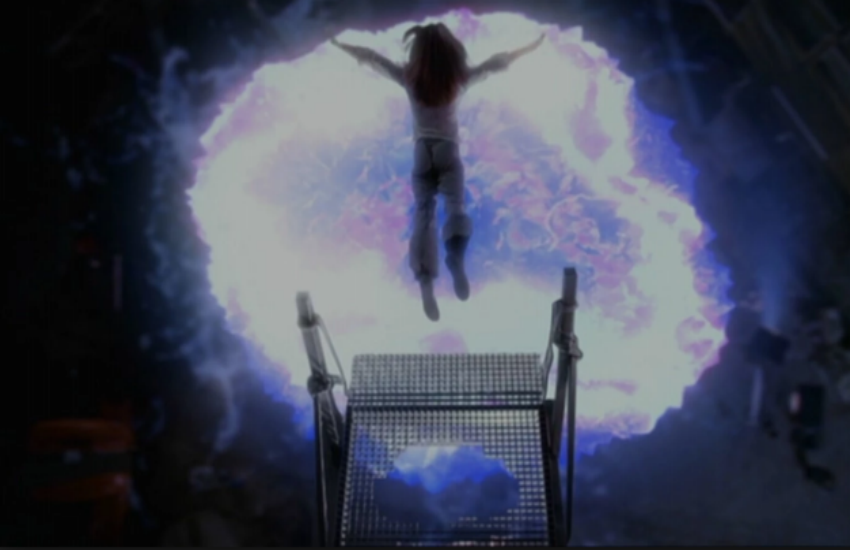Fifteen years after Buffy the Vampire Slayer tragically went off the air, news finally broke that the iconic 90s show is to be revived. Or rebooted.
No-one’s entirely sure right now what form this new Buffy will take, or if Buffy herself will even feature. What we do know is that the show’s creator Joss Whedon is still firmly in charge. Fans of the show, myself included, can breathe a sigh of relief in light of that particular morsel.
Buffy is the show that launched the careers of not just Whedon, but most of the main cast. Whilst largely overlooked for awards in its day, it is with hindsight considered to be one of the greatest television shows of all time, its influence felt across the television landscape today.
After having two weeks to digest the news of the show’s return, I’m still very much adamant that no-one other than Sarah Michelle Gellar is fit to fill the boots of Buffy Summers. I’m too emotionally invested in Gellar’s flawless performance to accept any substitute.
The show’s fandom remains enormous and dedicated
Buffy was one of the few heroes I had growing up lost, gay and confused. The fervent and divided response across the rest of the (still enormous) fandom inspire me to explain now why the show has remained utterly sacred to me for two decades.
My undying adoration for the show began with its 1998 debut on British broadcaster BBC2. In fact, I still remember the first time I saw the trailer for the show at age seven, and how hyped I was to catch the premiere. The campy horror and action sucked me in, despite the dysmal special effects and naff synth-heavy score of season one.
Today I find it hard to believe the show got picked up for a second season, but God am I grateful it did. Because it’s in season two of Buffy the Vampire Slayer that it truly became the show that I clung to for support over the next 20 years. Here’s why.
Whedon kicked the narrative into high-gear in season two, navigating searing emotional intensity as Buffy’s world begins to collapse. Expelled from school, kicked out of her home and forced to kill the love of her life to save the world, she (not for the first or final time) suffers a post-traumatic break and leaves town.
Buffy aired right around the time my family began to fall apart. As the stability of family life disintegrated, I disappeared into fantasy for comfort. I desperately needed heroes to look up to, and at age eight I was already growing out of my Spice Girls obsession. It would be some years yet before I happened upon the pop and rock stars (Madonna, Marilyn Manson) who would shape my adolescence and mold my adult mind.
To make matters exponentially worse, my school life was fraught with bullying and isolation. As a profoundly effeminate young boy tormented by macho abuse both at home and in the playground, I had nowhere safe to go.
Buffy the Vampire Slayer was an escape
Buffy the Vampire Slayer was my escape, and its protagonist my avatar. As Passion of the Nerd’s Ian Martin says, ‘The Buffyverse writers have thought about the human heart and are writing about it with purpose and perspective.’ The show, despite silly outward appearances, demonstrated great emotional depth and character-driven storylines, as well as consistent deconstruction of familiar gender roles.
Buffy’s ‘coming out’ as the slayer to her mother particularly resonated with queer viewers like myself. One of the defining aspects of her character is her struggle to maintain a normal life concealing a true self that sets her apart from the society around her. Buffy is complex – she oftentimes hates herself, and desperately searches for purpose. She is a fictional reflection of minority stress.
[embedded content]
(Actually, so much has been said of the show’s real impact on gay representation in television that it’s almost redundant for me to repeat. For a brilliant exploration of Buffy’s queer themes and subtexts, check out IntoMore’s video on the subject.)
[embedded content]
Over the course of seven seasons, Buffy’s world would invariably crumble as she navigated the pains of growing up. The demons she faced were designed by Whedon and the writers as metaphors for the challenges we face as we transition into adulthood. The role of the slayer is a metaphor itself for accepting the responsibilities of adulthood.
The trauma I experienced in childhood became inextricably tethered to the escape I relished through Buffy, and so as I dragged that emotional baggage well into my twenties, so too did my need for the show endure.
‘No better show to re-introduce you to your emotions’
Again, Ian Martin brilliantly captures what the show means to me today.
He says: ‘Why do we value great tragedy in our entertainment? I find life can be profoundly numbing. There happens to be whole large parts of adult life that nobody talks about – boredom, routine and petty frustration. I’ve noticed these things have the effect in my own life of muting the highs and lows.
‘There was even a time in my own life that I stopped feeling anything for quite a while, other than anxiety that something was wrong and I didn’t know how to fix it. But without any emotion I couldn’t find the motivation to move in one direction or the other. I became utterly stagnant and frozen in time.
‘If you’re feeling numb there is no better show to properly re-introduce you to your emotions.’
This became all too painfully real for me in January this year, when I spent four days alone in a hospital bed following a suicide attempt. With just my phone for company, I found myself repeatedly returning to the show, and the final scene of season five’s finale in particular. It sees Buffy kill herself to save the world, but not before imparting some final words of advice to her sister, and ultimately myself.
‘The hardest thing in this world is to live in it. Be brave. Live.’
Buffy sacrifices herself (Photo: 21st Century Fox)
Can the new Buffy live up to the original?
I’m still here, and I’m going to be there when the new Buffy drops.
I know what I’d like to see, and I have faith in Joss Whedon. Whether or not the revival could have the same impact on audiences as it did in the 90s is entirely unknowable. Maybe it will get lost among the ocean of television it directly inspired. Or perhaps it will shift 21st century paradigms and redefine the medium once again. At present it’s pointless to speculate.
It doesn’t matter – the original Buffy is still here to slay.
Relive Buffy’s emotional season five finale speech here:
[embedded content]







